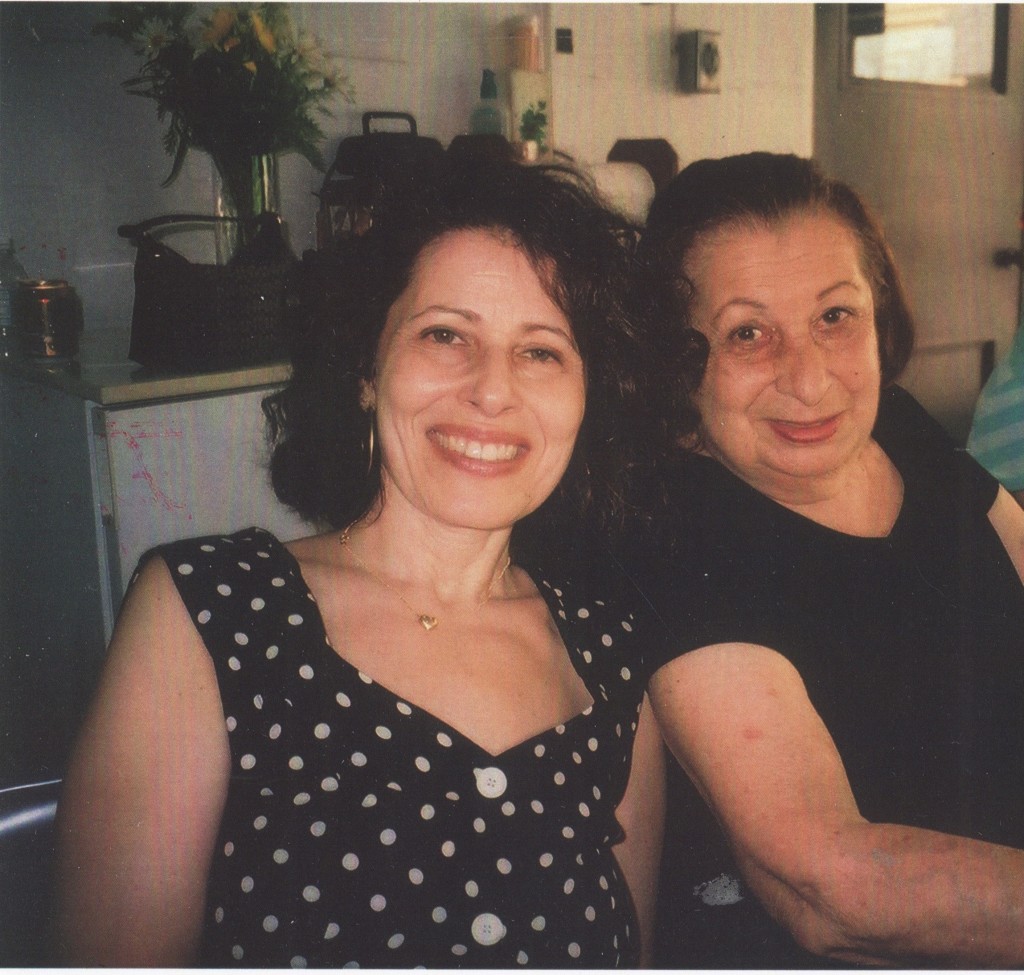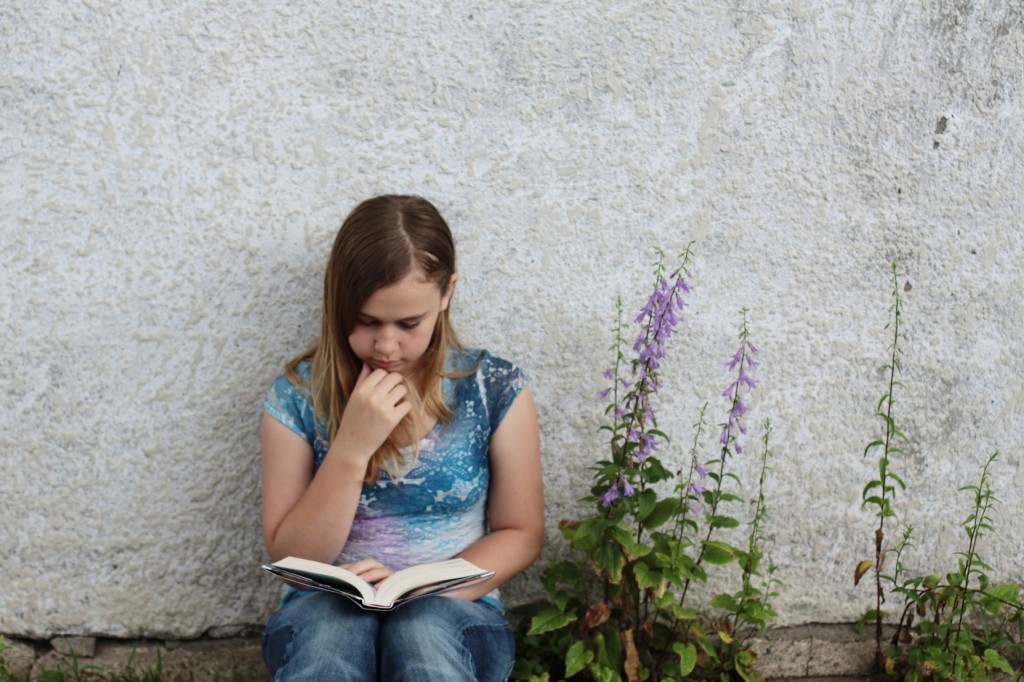
By Lesléa Newman
A slim, tattered volume of verse with a dark stain on its gold cover is one of my most prized possessions. The book is called Poems for the Little Ones, written by Edie Scobie and published in 1925. The poems in it are rather dreadful:
I’ve dot a lovely dolly
Her name is Violet May
I always take her wiv me
When I go out to play.
It’s not what’s in the book that I treasure; it’s the book itself, which I received from my mother for my eighth birthday. When I opened it, I learned that my mother had also received the same volume for her eighth birthday. Given by her brother, my uncle Arthur, who was eleven years older than my mother, it is inscribed:
To Florence, from Arthur
January 25, 1935
A foundation stone for your future literary castle
Like me, my mother always knew that she wanted to be a writer. Unlike me, her dream never came true.
Even though I always knew in the back of my mind that my mother had once had literary aspirations, I didn’t think much about it. Growing up, my mother was just my mother: the person who put food in front of me, told me to clean my room, and took me shopping for school clothes every fall. When I became a teenager, my mother was someone to fight with about my short skirts, my long hair, and my militant vegetarian eating habits. As a young woman/budding feminist, I saw my stay-at-home mom as the symbol of everything there was to rebel against. And as a not-so-young woman, I relegated my mother to the sidelines of my life as I pursued my goal of being an author.
Though we always mentioned my writing career during our brief, once-a-month phone calls, my mother didn’t know the whole story. I sent home copies of my books that I knew she’d enjoy and could show off to her friends: picture books like Where Is Bear?, Skunk’s Spring Surprise, A Sweet Passover, and Runaway Dreidel! I did not send home books of mine that I knew she’d find upsetting, the thinly disguised autobiographical novels, short story and poetry collections: Nobody’s Mother, The Reluctant Daughter, Secrets, Jailbait, Just Like a Woman, Pillow Talk. These books starred the same protagonist (though she went by different names) who at various times struggled with an eating disorder, found herself in abusive relationships with men, came out as a lesbian, and always viewed her mother with an unforgiving disdain.
More of my books were published, more years went by, and then my mother got sick. She collapsed on a cruise ship and had to be airlifted to a hospital where she remained on life support for ten days. I flew across the country and remained at her side until she was well enough to come home. For hours on end I sat in her hospital room watching her sleep and contemplating our relationship. Our lack of closeness was something that I had always found extremely painful. And I had always blamed my mother for it. But of course it wasn’t all her fault. What could I do to bring us closer? I decided, though it was rather late in the game, to extend the hand of friendship and try to get to know her better.
A month after my mother was settled back home, I went to visit her. After lunch, I peppered her with questions. I wanted to know about her life as a young woman, if she’d dated anyone before she met my father, and whatever happened to her “future literary castle”?
“It’s not important,” my mother said, dismissing my questions with a wave of one manicured hand. Then she changed the subject. “Do you believe all this rain we’ve been having lately? Well, at least it isn’t snow.”
Since my mother was not forthcoming (to say the least) I called my “aunt” Phyllis, who had been my mother’s best friend since they were both ten.
“Oh, your mother was a very good writer,” Aunt Phyllis told me. “I still remember the story she published in Cargoes, Lincoln High School’s literary magazine.”
What? My mother had never told me she had written, let alone published a short story. Luckily my aunt never throws anything away and is very organized. Two days after we had this conversation, a copy of the story arrived in the mail.
I dropped everything and sat down to read, “M is for….” by Florence Levin.
All in all, it had been a pretty rotten day. If only I hadn’t shot my mouth off. It didn’t do any good. It never did. It only made things worse.
Whoa. My mother had written a thinly disguised autobiographical short story about shooting off her mouth? I read on. “Florence” is at the Sweet Shoppe where, “The rain poked an inquisitive finger through the doorway” and the “stool squealed in protest.” Florence, alone, and too upset to order a snack, watches the rain and remembers a recent fight she had with her mother. A huge fight that ends with the narrator thinking, “It’s a difficult thing to admit, even to oneself, that you hate your mother… ”
I had to put the pages down and ponder that sentence for a long time.
When I picked up the story again, it picked up with Florence remembering another recent fight she and her mother had:
“Look at her. She’s sitting there like a princess and I’m doing the dishes.”
“Please, momma. I’m doing my homework.”
“Oh so you’re doing your homework. So I suppose we’ll have to tiptoe around the house until you finish your homework. Pretty soon maybe we won’t be able to breathe if it disturbs you.”
“Oh, momma, please.”
“Oh momma, please. Oh momma, please again. A fine racket she’s got. She sits like a prima donna while I work until I’m ready to drop and nobody lifts a finger to help me….”
And the fight ends with Florence screaming words I had thought, but never dared to say aloud to my own mother: “I hate you, do you hear? I hate you! I hate you!”
Wow.
As Florence sits in the Sweet Shoppe alone with her memories, an “errant tear chased a freckle down [her] nose.” She studies photos pinned to a bulletin board of “Lincolnites” who are in the military and thinks of all the boys “over there” on Iwo Jima and in Germany.
I picked out the smiling face of my sergeant brother among the bevy of others…..Bob with his white teeth and broad shoulders. Bob who had set feminine hearts aflutter before the days of Tarawa: Before the mail stopped coming. Poor momma. It was such a long time between letters. She must be so terribly worried….
Why my mother chose to change her brother’s name but not her own remains a mystery to me. But no matter. The story ends with Florence coming to a new understanding of her mother.
I thought I had troubles. Troubles—why compared to momma—momma whose eyes had been reddened lately. Momma, who needed comfort so desperately lately. Momma, momma darling.
And as Florence comes to a better understanding of her mother, she suddenly realizes that she is hungry.
My mother’s story absolutely blew me away. It’s extremely well written for a high school student, full of sensory imagery, telling detail, authentic-sounding dialogue, and original metaphor. It makes good use of flashbacks. It has a clear beginning, middle, and end. Something happens. And in addition to literary merit, I was astonished by the similarities between my mother and her mother, and my mother and me.
Of course I had to telephone my mother right away. After we chatted a bit, I said, “Aunt Phyllis gave me a copy of Cargoes. I read your story.”
It got very quiet on the other end of the phone.
“It’s a wonderful story,” I went on. “You’ve got a lot of talent.”
More silence. And then my mother said, “Thank you.”
“So,” I said, going for a casual tone, “why didn’t you ever tell me about it?”
“I didn’t think it was important.”
“What else did you write?” I asked.
“I stopped writing after that.”
“Why?”
I could almost hear my mother shrug. “I didn’t see the need to pursue it.”
A thought occurred to me. “Did Grandma ever read the story?”
My mother paused. “She did.”
“What did she say when you showed it to her?”
“I didn’t show it to her. She found it. And she wasn’t pleased.”
I wondered if my mother could hear me nodding as I thought about what to say next. “You know, Mom,” I said, “I’ve written some stories similar to this one. Stories I’ve never showed you. Stories that might upset you.”
“So what?” my mother asked. “A lot of things upset me. Then I get over them.”
“Even stories about me and you?” I asked.
“Darling,” my mother said in a gentle voice, “don’t you know I’ve read everything you’ve written?”
“You have?” I asked, my heart pounding.
“Of course I have.”
“And?”
“And I think you’re a very fine writer.”
I started to cry. “But what about the stories where you and I—”
“It doesn’t matter.” My mother cut me off. “What matters is that you tell the truth. That’s what’s important.”
As I wept, it dawned on me: my grandmother must have said or done something to thwart my mother’s writing career. And my mother was not going to do the same thing to me.
“I love you, Mom,” was all I could say.
“I love you to pieces,” was how she answered.
From that point on, I showed my mother everything I wrote. She was generous with both praise and criticism. She had a good editor’s eye and often pointed out weaknesses in my writing that had slipped by me, the members of my writers group, my agent, and my editor.
Then she got sick again.
During my mother’s final hospital stay, she beckoned me to her bedside. “I’m giving you permission to write about all this,” she waved her hand around the room, “under one condition.”
“What’s that?” I asked.
“Promise me I’ll never have to read it.”
I promised.
After my mother died, I felt her presence most acutely while I was writing about her. My mother loved poetry, and I could feel her sitting beside me as I wrote sonnets, haiku, villanelles, and sestinas about her illness and death, and my own grief. Formal poetry provided the firm container I needed to hold my unwieldy grief. Two and a half years after my mother died, my book of poetry I Carry My Mother was published. As I held the first copy in my hand, I stared at the cover with its painting of red high heeled shoes (my mother loved shoes as much as I do) and my sorrow at being unable to show it to her was palpable. I like to think that wherever my mother is, somehow she knows that I made good on my promise. And that she is very proud.
•••
LESLÉA NEWMAN is the author of sixty-five books for readers of all ages including the short story collection, A Letter to Harvey Milk, the novel-in-verse, October Mourning: A Song for Matthew Shepard, and the children’s classic, Heather Has Two Mommies. A former poet laureate of Northampton, Massachusetts, she currently teaches at Spalding University’s low-residency MFA in Writing program. Her newest poetry collection, I Carry My Mother, explores a daughter’s journey through her mother’s illness and death and her own grief.

 Follow
Follow
